Artist: William Conor RHA RUA ROI (1881-1968) Title: At Benediction (c.1918) Signature: signed lower left Medium: oil on canvas Size: 61½ x 51½cm (24.2 x 20.3in) Framed Size: 84.6 x 74.4cm (33.3 x 29.3in) Provenance: The Goodwin Galleries, Limerick (label verso); James Adams, Dublin, Important Irish Art, 4th October 2006, Lot 138; Private Collection Exhibited: The Goodwin Galleries, Limerick a#morebtn { color: #de1d01; } a#morebtn:hover { cursor: pointer;} Inside a chapel, a group of women, young and old, kneel at prayer. The furnishings of the chapel are humble, the narrow wooden pews bearing simple Gothic ornamentation. Four women kneel in the front pew. They include, in the foreground, an elderly penitent wearing a shawl, holding rosary beads in he... Read more Inside a chapel, a group of women, young and old, kneel at prayer. The furnishings of the chapel are humble, the narrow wooden pews bearing simple Gothic ornamentation. Four women kneel in the front pew. They include, in the foreground, an elderly penitent wearing a shawl, holding rosary beads in her clasped hands. Next to her a young woman, hands also joined in prayer, looks upwards with a soulful expression. The third figure in the pew looks down, holding her head in her hands, as if in grief, while the last appears stoic and determined. Behind them, in the second pew, three women pray; the first, a young woman wearing a green beret and gaberdine coat, looks straight ahead with an anxious expression, while those behind her are wear shawls. The painting relates to a crayon drawing by Conor, Mass at Dunquin, which shows essentially the same scene and suggests that the interior is that of St. Gobnaits Church, at Dunquin, Co. Kerry. Born in Belfast in 1881 and trained at what is now the Belfast College of Art, William Conor remains one of Irelands best-loved artists of the twentieth century. After working as a commercial artist and lithographer, during World War I he received a significant commission, to paint portraits of soldiers and others involved in the war effort. During these years he also spent time painting in Kerry, and this work may date from this early period. By 1920, he had moved to London, where his work was promoted by fellow-Belfast artist, the portrait painter John Lavery In 1922, Conor was recommended by Lavery for another prestigious commission, to record on canvas the ceremonial opening of Parliament in Northern Ireland, and over the following decades, he received regular commissions to paint portraits of judges, politicians, aristocrats and army officers. However, today Conor is far better known for his depictions of the ordinary working people of Belfast and its surroundings; the shipbuilders, labourers, street musicians and washerwomen who struggled to maintain a livelihood, often in conditions of adversity. His paintings collectively form a visual social history of the time, with shoppers, itinerant workers trudging along the road, people gossiping and children playing in the street. This recording of everyday lives extended to religious worship, and in this painting Conor provides an accurate image of the piety and devotion amongst all age groups that was such a characteristic of Ireland in the early to mid-twentieth century. Peter Murray, November 2020
Artist: William Conor RHA RUA ROI (1881-1968) Title: At Benediction (c.1918) Signature: signed lower left Medium: oil on canvas Size: 61½ x 51½cm (24.2 x 20.3in) Framed Size: 84.6 x 74.4cm (33.3 x 29.3in) Provenance: The Goodwin Galleries, Limerick (label verso); James Adams, Dublin, Important Irish Art, 4th October 2006, Lot 138; Private Collection Exhibited: The Goodwin Galleries, Limerick a#morebtn { color: #de1d01; } a#morebtn:hover { cursor: pointer;} Inside a chapel, a group of women, young and old, kneel at prayer. The furnishings of the chapel are humble, the narrow wooden pews bearing simple Gothic ornamentation. Four women kneel in the front pew. They include, in the foreground, an elderly penitent wearing a shawl, holding rosary beads in he... Read more Inside a chapel, a group of women, young and old, kneel at prayer. The furnishings of the chapel are humble, the narrow wooden pews bearing simple Gothic ornamentation. Four women kneel in the front pew. They include, in the foreground, an elderly penitent wearing a shawl, holding rosary beads in her clasped hands. Next to her a young woman, hands also joined in prayer, looks upwards with a soulful expression. The third figure in the pew looks down, holding her head in her hands, as if in grief, while the last appears stoic and determined. Behind them, in the second pew, three women pray; the first, a young woman wearing a green beret and gaberdine coat, looks straight ahead with an anxious expression, while those behind her are wear shawls. The painting relates to a crayon drawing by Conor, Mass at Dunquin, which shows essentially the same scene and suggests that the interior is that of St. Gobnaits Church, at Dunquin, Co. Kerry. Born in Belfast in 1881 and trained at what is now the Belfast College of Art, William Conor remains one of Irelands best-loved artists of the twentieth century. After working as a commercial artist and lithographer, during World War I he received a significant commission, to paint portraits of soldiers and others involved in the war effort. During these years he also spent time painting in Kerry, and this work may date from this early period. By 1920, he had moved to London, where his work was promoted by fellow-Belfast artist, the portrait painter John Lavery In 1922, Conor was recommended by Lavery for another prestigious commission, to record on canvas the ceremonial opening of Parliament in Northern Ireland, and over the following decades, he received regular commissions to paint portraits of judges, politicians, aristocrats and army officers. However, today Conor is far better known for his depictions of the ordinary working people of Belfast and its surroundings; the shipbuilders, labourers, street musicians and washerwomen who struggled to maintain a livelihood, often in conditions of adversity. His paintings collectively form a visual social history of the time, with shoppers, itinerant workers trudging along the road, people gossiping and children playing in the street. This recording of everyday lives extended to religious worship, and in this painting Conor provides an accurate image of the piety and devotion amongst all age groups that was such a characteristic of Ireland in the early to mid-twentieth century. Peter Murray, November 2020
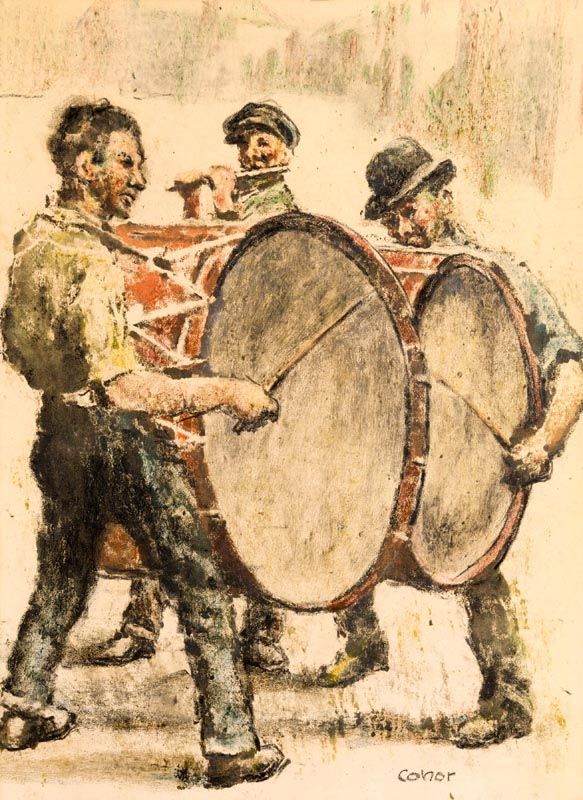
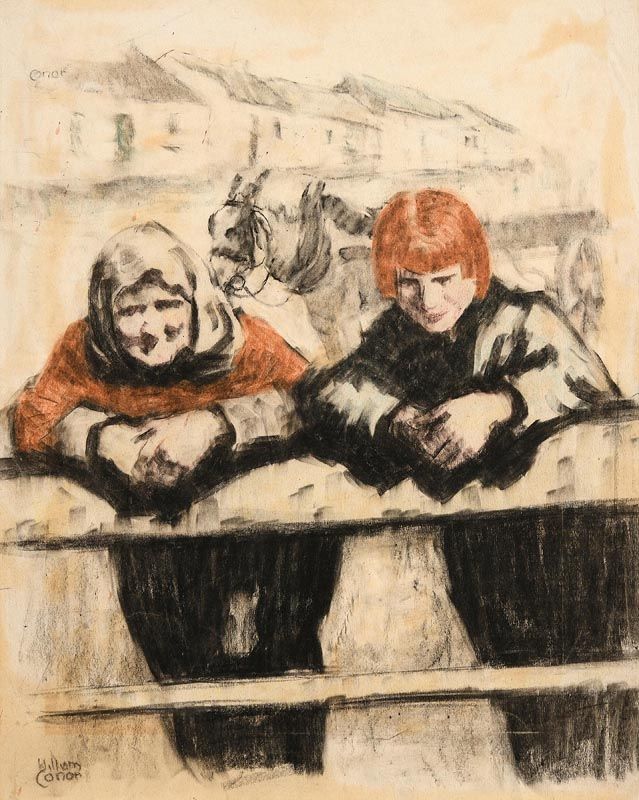
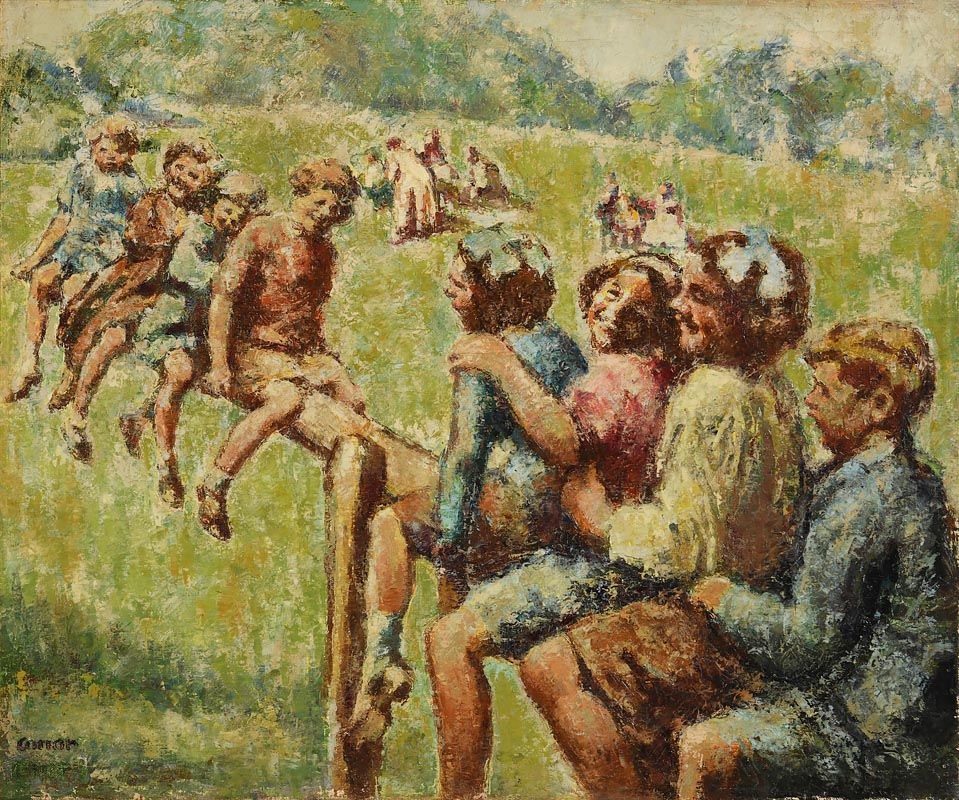
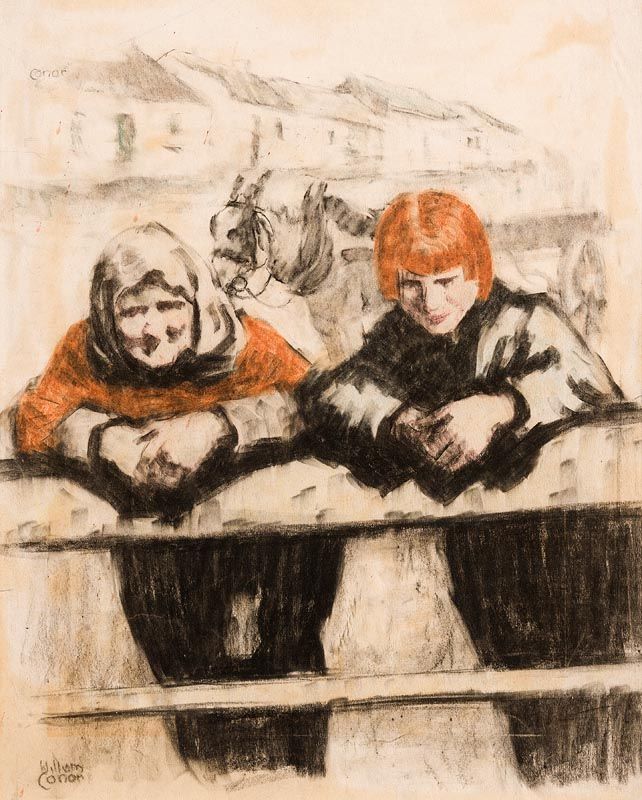
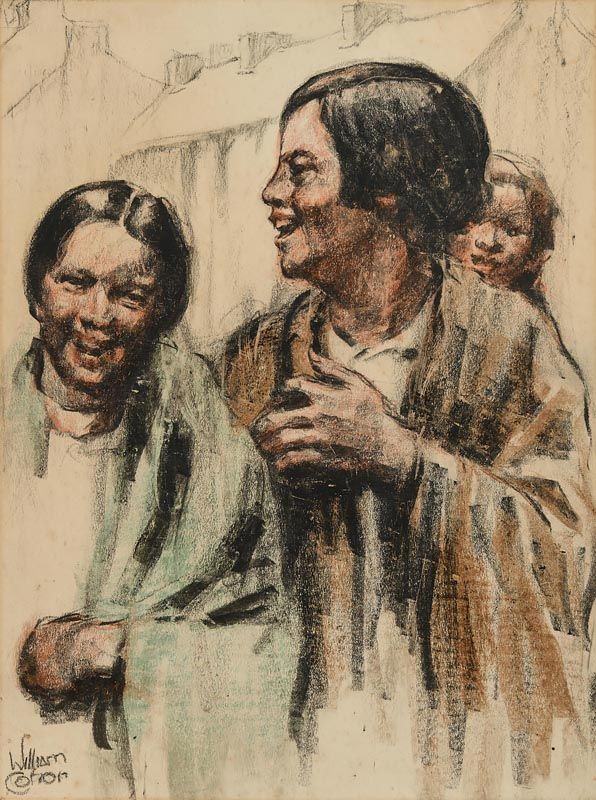
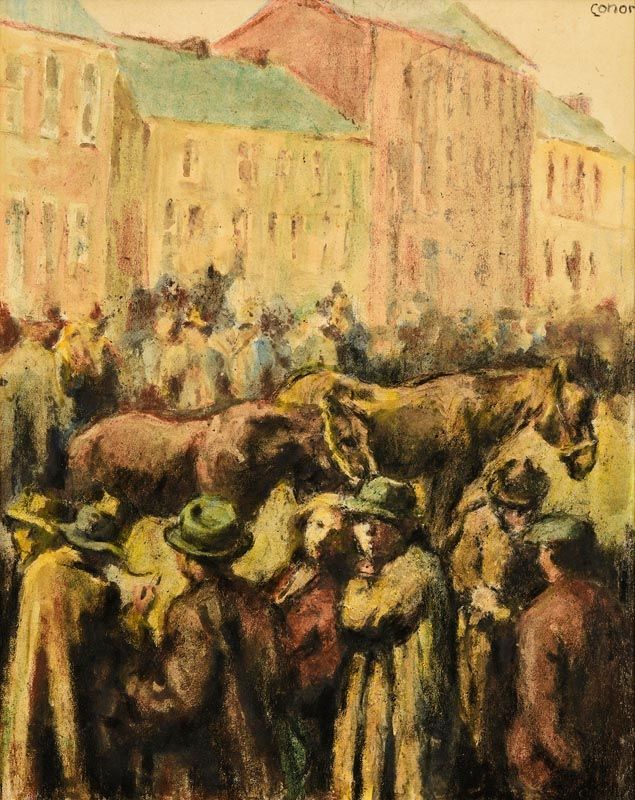
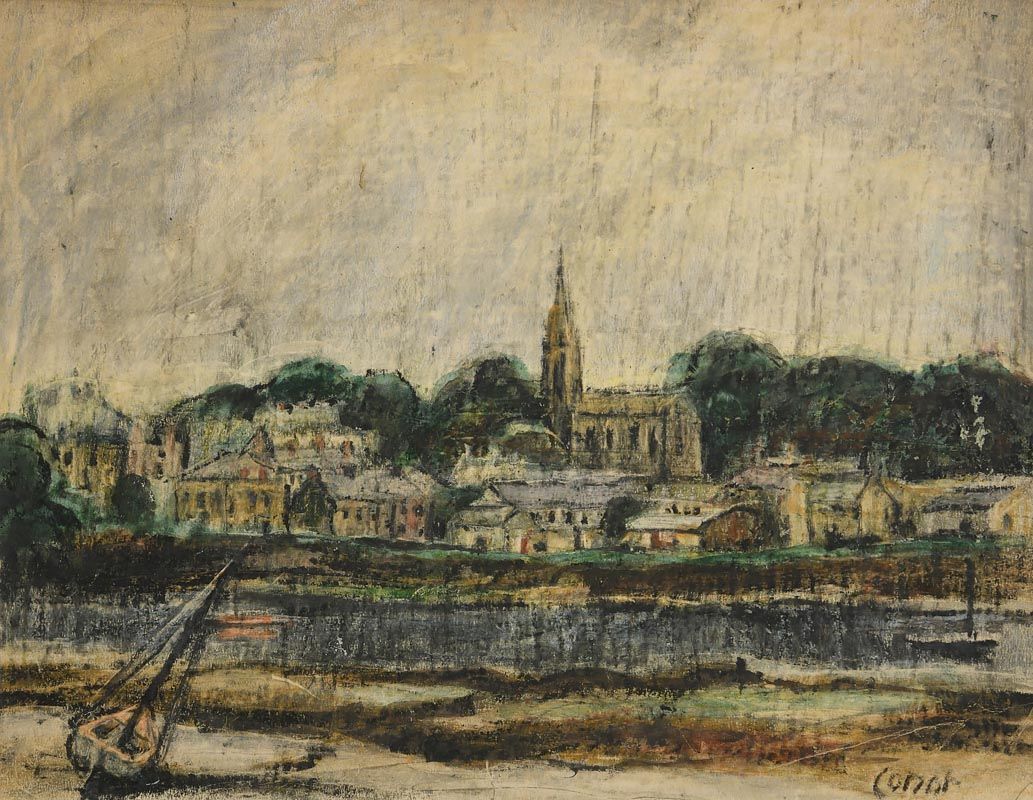
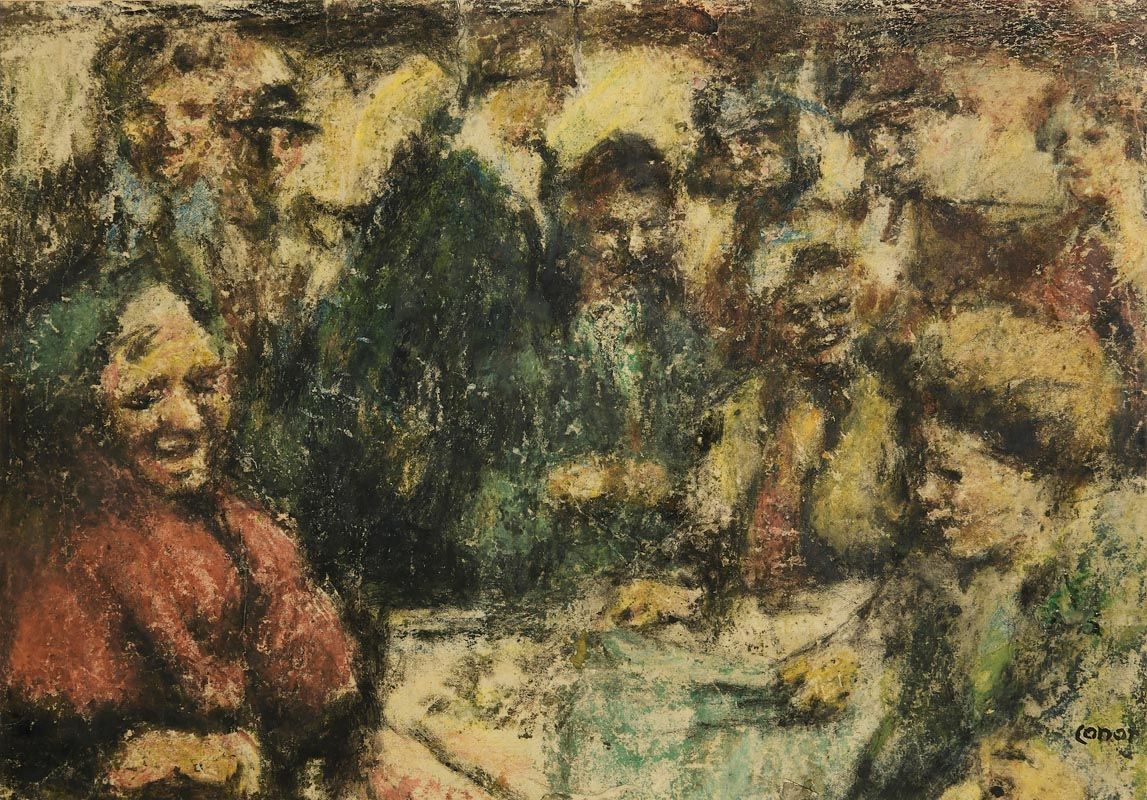

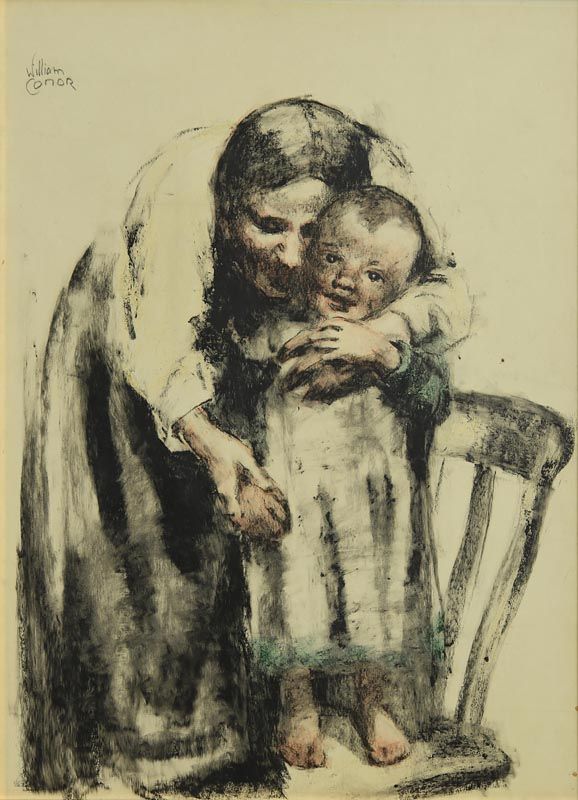
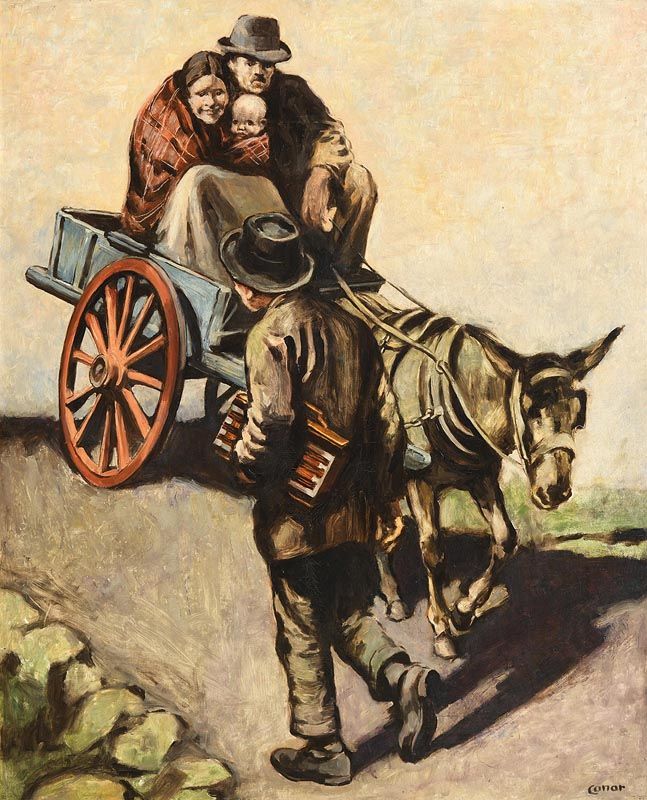
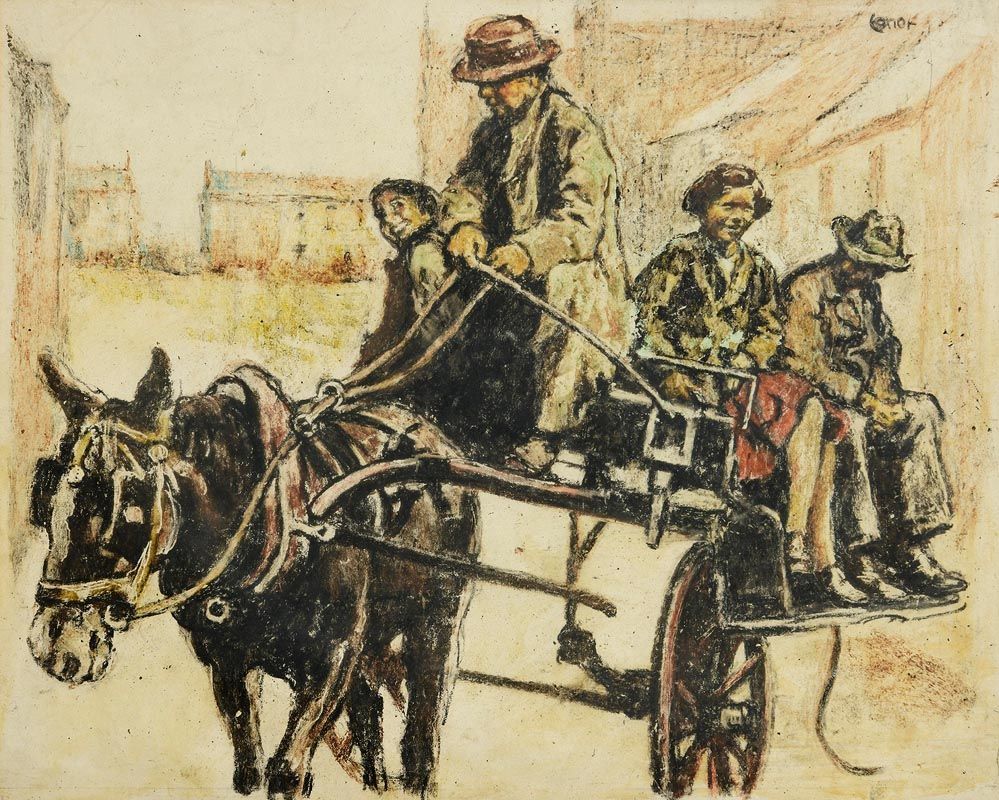
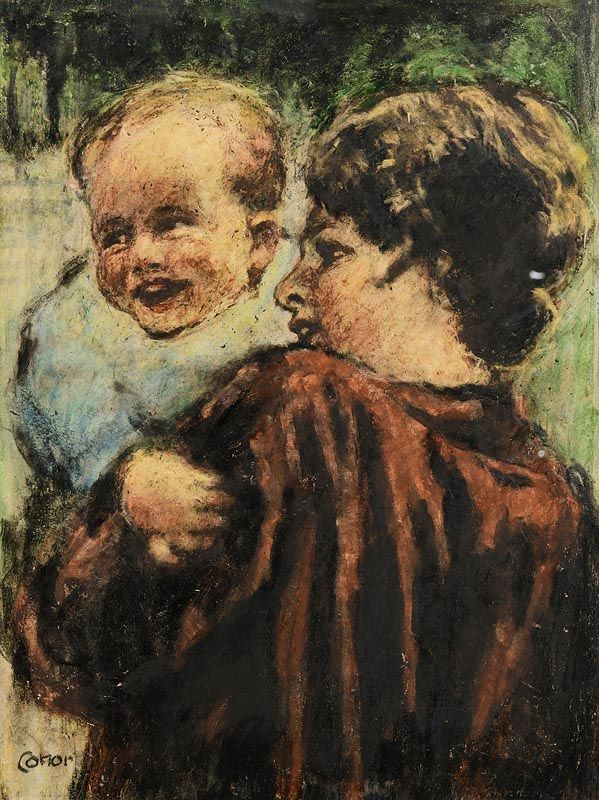

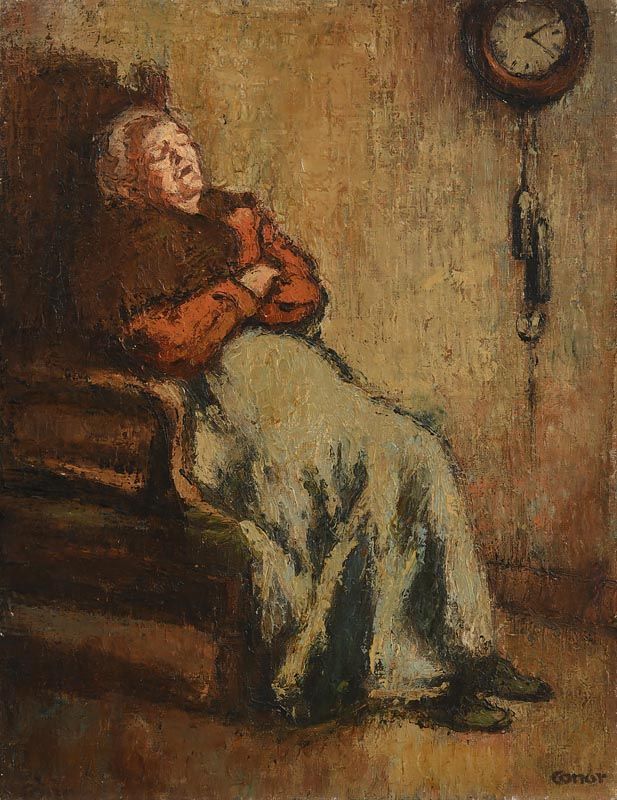
Testen Sie LotSearch und seine Premium-Features 7 Tage - ohne Kosten!
Lassen Sie sich automatisch über neue Objekte in kommenden Auktionen benachrichtigen.
Suchauftrag anlegen